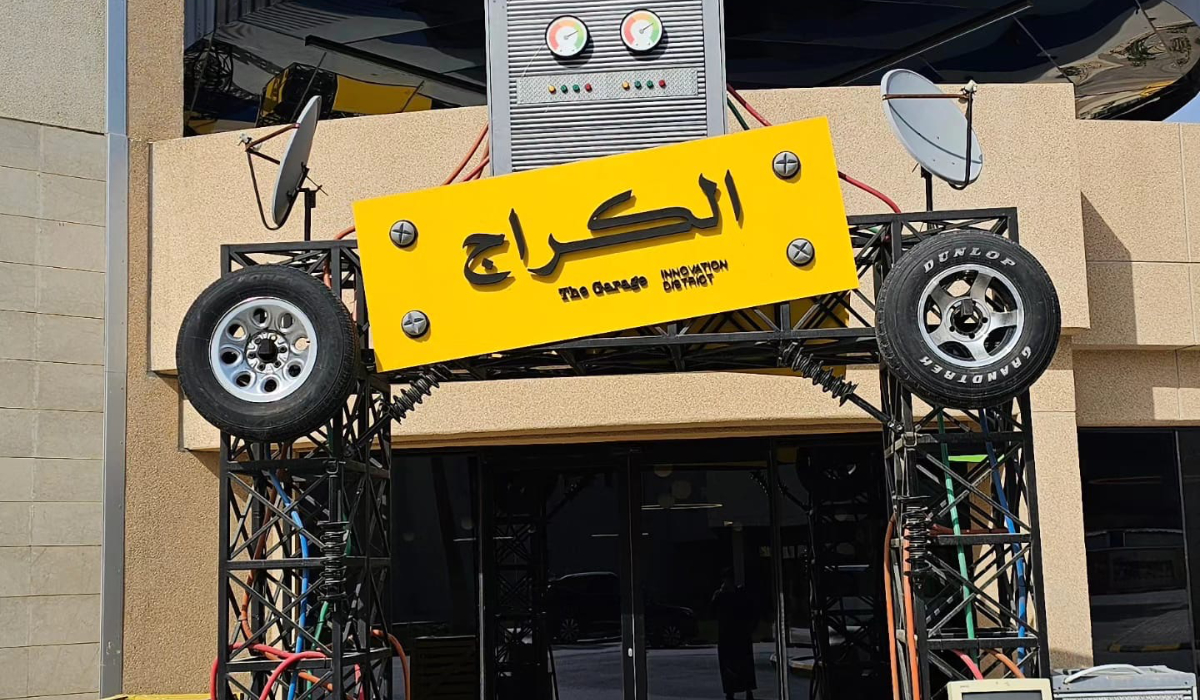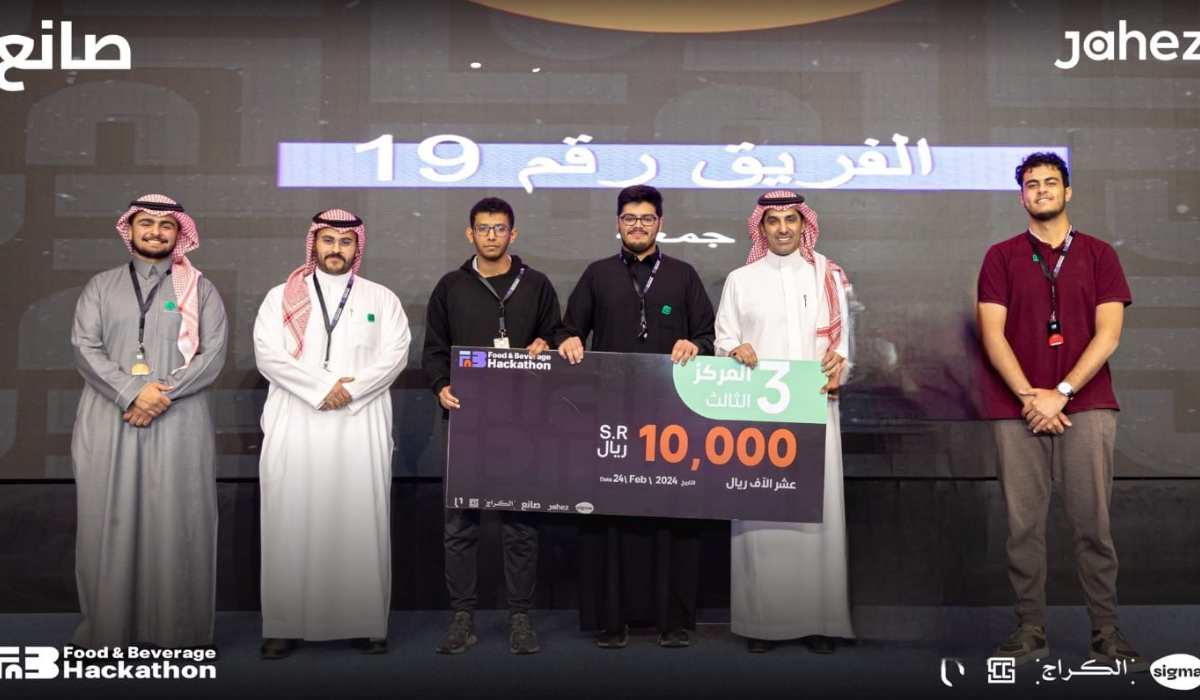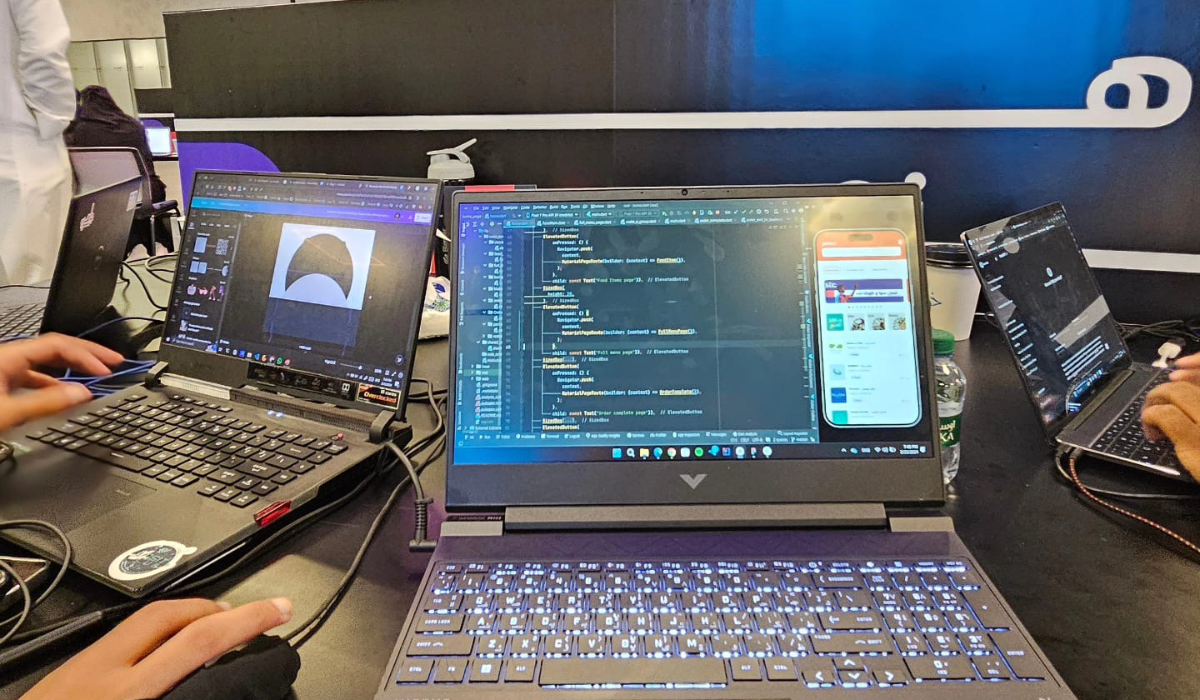RIYADH: Ahmad Al-Rajeh, 22, is one of many young Saudis who represents the spirit of Saudi Vision 2030.
A software engineering student at Prince Mohammad bin Fahd University, one of Al-Rajeh’s recent projects has been the founding of the Google Student Club at the university, a hub for tech enthusiasts and aspiring innovators.
The initiative has fostered a community where students can collaborate, learn, and advance their skills in the realm of cutting-edge technologies.

"The club not only provides a space for networking but also organizes workshops and events that bring together industry experts and students, creating a bridge between academia and practical application." (Supplied)
The club not only provides a space for networking but also organizes workshops and events that bring together industry experts and students, creating a bridge between academia and practical application, he explained.
Al-Rajeh also won the Jahez Hackathon for Food and Beverages in February this year. The hackathon provided an intense environment where quick thinking and adaptability were key, and his winning solution showcased his ability to integrate technology with everyday needs, delivering a product that was both innovative and practical.
I hope to inspire other young innovators to pursue their ideas and contribute to a future where technology serves as a catalyst for positive change.
Ahmad Al-Rajeh, Prince Mohammed bin Fahd University student
In an interview with Arab News, Al-Rajeh said: “I identified a common challenge in food delivery apps — the difficulty of coordinating group orders. Typically, users resort to inefficient methods like creating WhatsApp groups or passing a phone around, which often leads to mistakes and frustration.”
His project offered the solution of a “shared cart” feature that simplifies the process. “With a single click, users can generate a link or code to share with friends or family, allowing everyone to add their orders to the same cart in real time.

Student and innovator Ahmad Al-Rajeh won the Jahez Hackathon for Food and Beverages in February this year. (Supplied)
“This ensures a seamless and error-free group ordering experience, enhancing overall customer satisfaction,” he noted.
Al-Rajeh said that his on-going participation in the Innovation Diwan Challenge, organized by the Misk Foundation, has been one of the significant milestones in his journey as an innovator.
The competition, designed to foster social innovation among Saudi youth, aligns with his personal commitment to leveraging technology for societal benefit.

For this challenge, along with his team, Azm, Al-Rajeh has developed an AI-powered educational app specifically tailored for individuals with ADHD. (Supplied)
For this challenge, along with his team, Azm, Al-Rajeh has developed an AI-powered educational app specifically tailored for individuals with ADHD.
The project was among the 55 selected for its potential impact and is currently in its second phase. The team includes Mariam Al-Hamar, Mariam Al-Hassan, and Salman Al-Snedi.
Al-Rajeh is leading the technical development of the app, a role that places him at the forefront of transforming an ambitious idea into a tangible solution. He noted that there are two more phases to go and bootcamps have been part of the experience.
“These bootcamps have been instrumental in equipping our team with necessary skills and insights, offering sessions on project management, AI integration, and user experience design,” he said.
Speaking about the collaborative work that goes into the project, Al-Rajeh said: “The entire project is an app, so my role is crucial. But it’s the combined efforts of the team that drive us forward.”
Each team member brings a unique set of skills, from project management to user-centric design, contributing to a well-rounded and dynamic development process. Al-Hassan leads the group, ensuring that the project stays on track and meets its objectives.
The foundation has provided Al-Rajeh and his team with mentorship and resources that have been instrumental in refining their app.
“The mentorship has provided insights into industry best practices and emerging trends, helping the team align their app with the latest technological advancements and educational needs,” he said.
Al-Rajeh and his team’s efforts represent how Saudi Arabia’s youth are driving change and creating innovative solutions.
Vision 2030, through its various initiatives and goal posts, seeks to empower young Saudis to lead projects that address societal challenges.
“I hope to inspire other young innovators to pursue their ideas and contribute to a future where technology serves as a catalyst for positive change,” Al-Rajeh said.
As he and his team continue their journey in the Innovation Diwan Challenge, they remain focused on their mission to create a more inclusive educational environment.
In the coming months, Al-Rajeh looks forward to advancing through the remaining phases of the challenge and ultimately launching their app.
As he balances his academic responsibilities with his passion for innovation, Al-Rajeh exemplifies the potential of Saudi youth to lead meaningful and impactful projects.






































